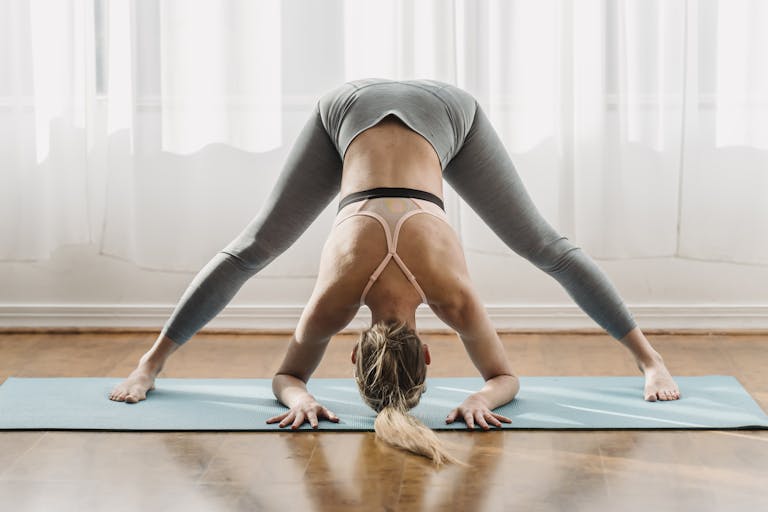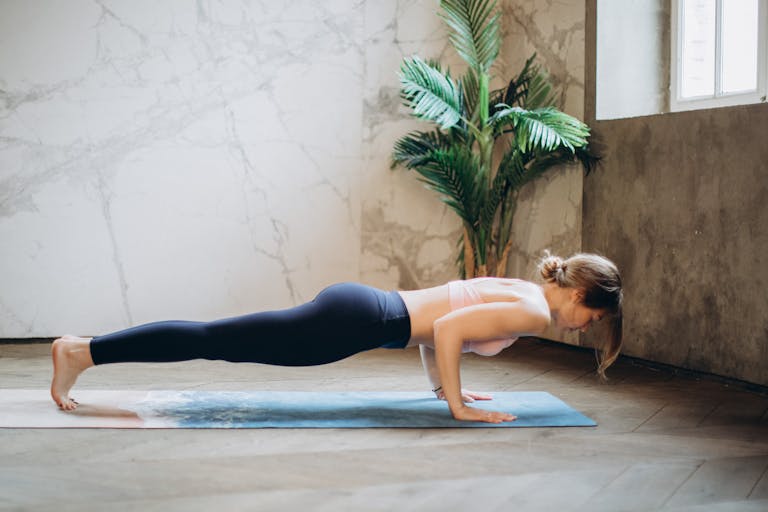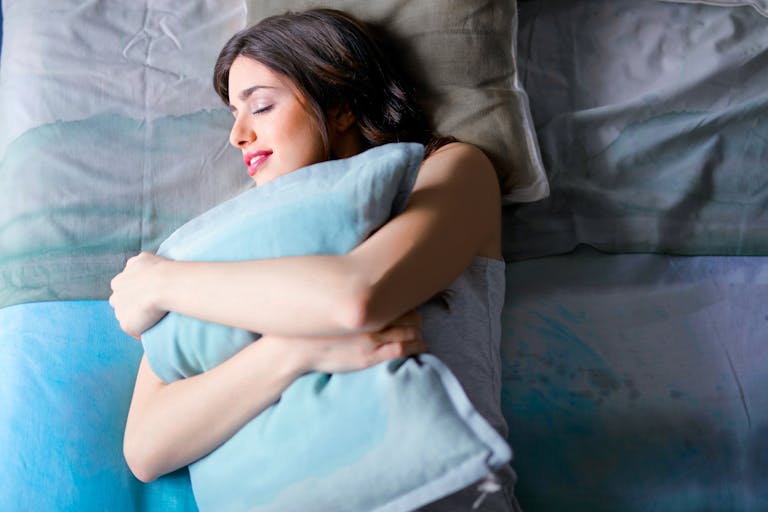IIn today’s fast-paced world, finding time for meditation can be a challenge. Thankfully, technology has provided us with innovative tools to help deepen our practice and achieve profound states of relaxation. Whether you’re a seasoned meditator or just beginning your mindfulness journey, the best meditation gadgets can enhance your experience, allowing you to reach deeper relaxation and mental clarity.
Biohacking and The Best Meditation Devices
Biohacking and meditation come together as powerful practices for optimizing mental clarity, emotional well-being, and overall brain performance. By integrating meditation into a biohacking routine, individuals can harness the benefits of both traditional mindfulness techniques and cutting-edge mindfulness technology to enhance their mental states.
Biohacking tools like brainwave-tracking headbands and relaxation devices that stimulate neural pathways make it easier to enter deep meditative states, reducing stress and promoting focus. These technologies provide real-time feedback, allowing users to fine-tune their sessions, making the practice more effective and personalized for achieving long-term cognitive and emotional resilience.

The Role of Technology in Modern Meditation Aids
Meditation has long been known for its mental, emotional, and physical benefits, including stress reduction, improved focus, and emotional balance. Traditionally, achieving a deep meditative state took years of practice. Now, technological innovations in the form of wellness devices have made it easier to enter deep states of relaxation, providing real-time feedback and tools that support and enhance your practice.
These solutions offer a range of features such as EEG biofeedback, vibration, audio-visual stimulation, and guided sessions. Whether you’re meditating to reduce stress, improve sleep, or enhance mindfulness, these modern relaxation tools offer personalized, effective support.
What to Look for in a Meditation Tool
When selecting the right meditation tool for your practice, consider the following:
- Usability: Is the device easy to use and comfortable for long sessions?
- Customization: Does it offer personalized features like adjustable settings for meditation styles or intensity?
- Effectiveness: How well does the device enhance your relaxation or focus?
- Portability: Can it be used at home, in the office, or while traveling?
Now, let’s dive into the 7 best options designed to help you reach deeper relaxation.

The 7 Best Meditation Gadgets for Deep Relaxation
1. Muse 2 Headband – Brainwave Tracking for Meditators
The Muse 2 Headband is one of the top mindfulness gadgets for anyone who wants data-backed insights during their sessions. Using EEG (electroencephalography) technology, it provides real-time feedback on brain activity, heart rate, breath, and body movement. This makes it easier to understand when your mind is calm or distracted, so you can fine-tune your practice and improve relaxation over time.
Who it’s for: Perfect for data-driven meditators who want measurable feedback to optimize their practice.
Features: Brainwave sensing, real-time feedback, multiple sensors (EEG, heart rate, breath tracking).
Benefits: Tracks progress and helps improve meditation techniques, great for both beginners and advanced meditators.
Check price on Amazon for Muse 2 Headband.

2. Core Meditation Trainer – Biofeedback with Haptic Guidance
The Core Meditation Trainer combines tactile biofeedback with guided meditations, using gentle vibrations to help you stay focused and relaxed. Its app offers a library of sessions tailored to stress reduction, better sleep, and mindfulness.
- Features: Vibrations for focus, guided meditations, heart rate monitoring.
- Benefits: Helps beginners stay engaged while building a consistent meditation habit.
- Who it’s for: Perfect for new meditators who want structure and gentle guidance.
Start your mindfulness journey with Core – Check the latest price here

3. BrainTap Headset – Immersive Light & Sound Therapy
The BrainTap Headset uses a combination of light, sound, and frequency-based stimulation to guide your brain into deeper states of relaxation. With a library of over 1,000 guided meditations, this neurotechnology tool caters to a wide range of wellness goals, including stress reduction, improved sleep, and enhanced cognitive function.
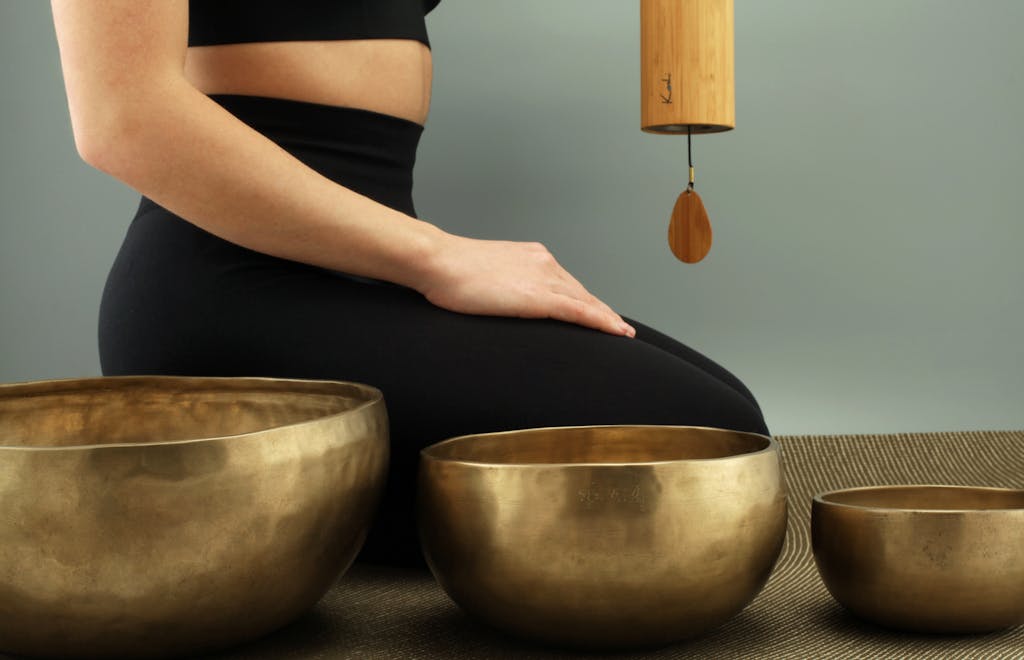
- Features: Light and sound therapy, audio library with guided meditations.
- Benefits: Helps shift brainwave activity to promote deep relaxation and mental clarity.
- Who it’s for: Ideal for those who enjoy immersive, sensory experiences that help them relax and focus.
4. Sensate Relaxation Device – Vagus Nerve Stimulation for Stress Relief
The Sensate uses infrasonic resonance to stimulate the vagus nerve, the part of the body responsible for controlling stress responses. This small, palm-sized relaxation gadget rests on your chest during sessions, promoting a deep sense of calm by encouraging the body’s natural relaxation mechanisms.
- Features: Infrasonic technology, vagus nerve stimulation, relaxation-inducing sounds.
- Benefits: Ideal for reducing anxiety and stress by tapping into the body’s natural relaxation response.
- Who it’s for: Best suited for people dealing with high levels of stress, anxiety, or those looking for immediate calming effects.
Calm your nervous system in minutes – Discover Sensate 2 here

5. NeoRhythm Headband – PEMF Technology for Focus and Sleep
The NeoRhythm Headband uses pulsed electromagnetic field (PEMF) technology to enhance meditation by influencing brainwave activity. Whether you’re looking to improve focus, enter deeper meditative states, or even enhance sleep, this biohacking wearable offers various settings for different goals.
- Features: PEMF technology, multiple settings for different brainwave states.
- Benefits: Promotes relaxation, focus, and deep sleep by affecting brainwave patterns.
- Who it’s for: Ideal for biohackers and advanced meditators who want to use technology to optimize their mental state.
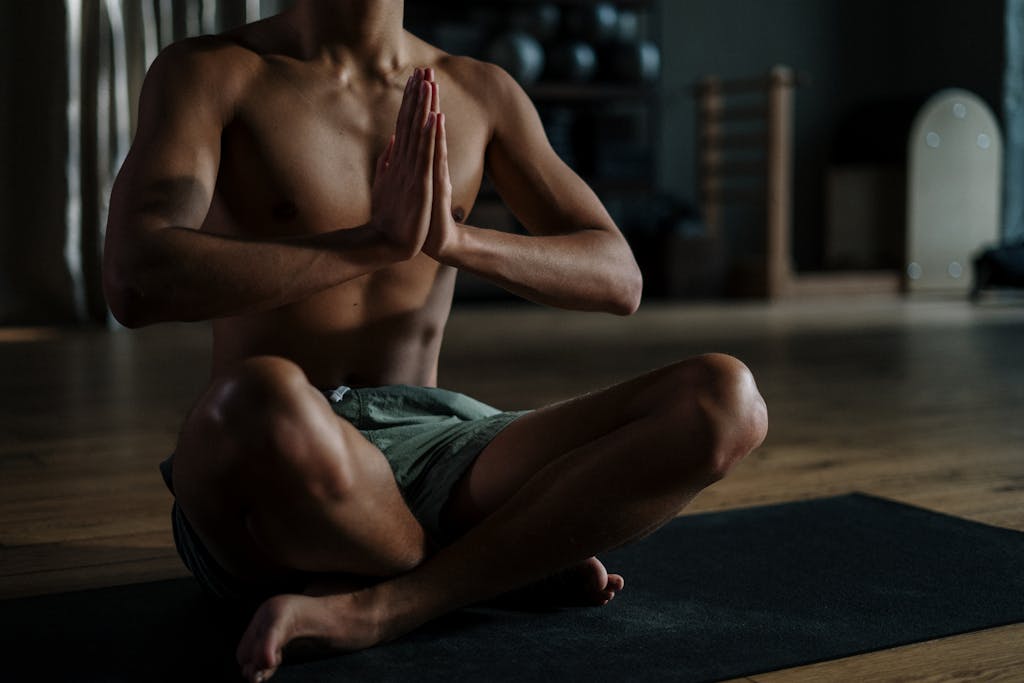
6. Kasina by Mindplace – Light & Sound for Consciousness Exploration
The Kasina by Mindplace is a light and sound machine designed to induce meditative and altered states of consciousness. The device uses flickering lights and harmonic soundscapes to guide users into a calm, meditative state. It offers various programs designed to promote relaxation, focus, and even lucid dreaming..
- Features: Audio-visual stimulation, light and sound sessions for relaxation and meditation.
- Benefits: Encourages deep relaxation by synchronizing brainwave activity with external stimuli.
- Who it’s for: Great for users interested in exploring different levels of consciousness and deep meditation experiences.
Transform your meditation with light and sound – Explore Kasina here.
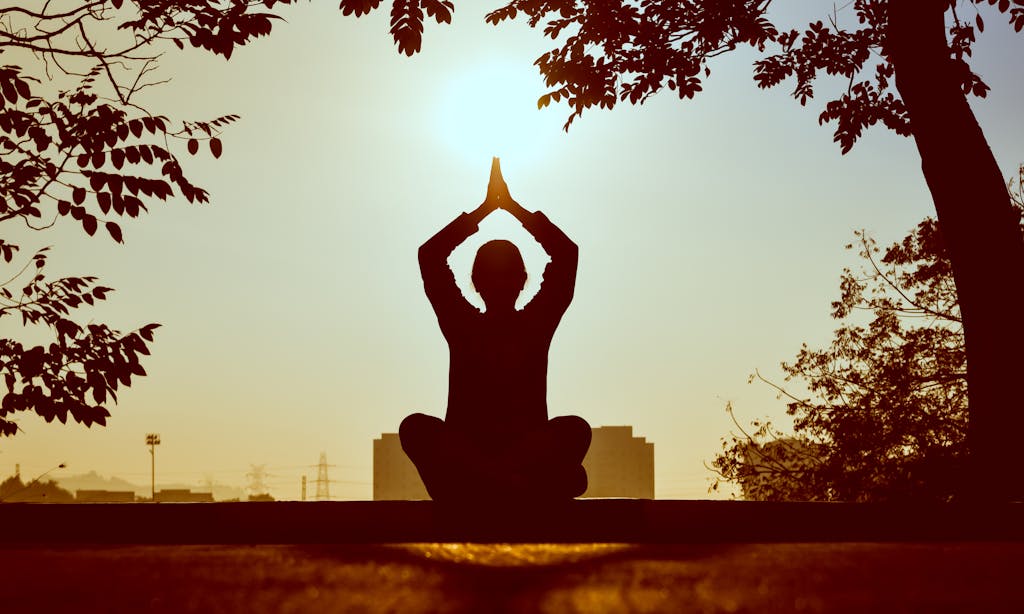
7. Morphée – Screen Free Meditation Device for Sleep & Relaxation
The Morphée is a portable, non-digital mindfulness device that offers more than 200 guided meditation and sleep sessions. What makes it unique is its analog design, free of screens and apps. Users simply turn a key to access different meditation styles, including breathing exercises, body scans, and relaxation techniques.
- Features: Over 200 guided sessions, screen-free, portable.
- Benefits: Offers a variety of relaxation techniques without the distraction of digital screens, making it perfect for bedtime or travel.
- Who it’s for: Ideal for users seeking simplicity and a distraction-free meditation experience.
Drift into deeper sleep naturally – Get your Morphée today

How Meditation Devices Promote Deep Relaxation
Modern meditation aids enhance traditional practices by offering features that make it easier to achieve states of deep relaxation. Whether through biofeedback, sound, light, or tactile stimulation, these tools help guide your body and mind into a more relaxed state. They can track your progress, provide real-time adjustments, and offer guided sessions, making it easier for anyone to meditate effectively.
By influencing brainwave patterns, controlling breathing, and stimulating the vagus nerve, these innovations offer a powerful way to lower stress levels, increase mindfulness, and improve emotional resilience.
Choosing the Right Mindfulness Device for You
When selecting a tool, think about your specific goals. Are you looking to reduce stress, improve your focus, or achieve deeper relaxation? Consider whether you prefer a data-driven option like the Muse 2 or a sensory experience like the BrainTap Headset. For those seeking simplicity, the Morphée offers a distraction-free solution, while the NeoRhythm Headband is perfect for biohackers wanting to optimize brainwave states.
Meditation Devices Comparison Table
| Device | Technology Used | Key Features | Best For | Price Range |
|---|---|---|---|---|
| Muse 2 Headband | EEG brainwave tracking | Tracks brain activity, heart rate, breath | Data-driven meditators | \$\$ |
| Core Meditation Trainer | ECG + haptic feedback | Vibrations sync with breath, guided meditations | Beginners & stress relief | \$\$ |
| BrainTap Headset | Light & sound therapy | 1,000+ guided sessions, brainwave entrainment | Deep relaxation & focus | \$\$\$ |
| Sensate Device | Infrasonic resonance | Stimulates vagus nerve, soundscapes | Stress & anxiety reduction | \$\$\$ |
| NeoRhythm Headband | PEMF technology | Multiple modes for focus, sleep, relaxation | Biohackers & advanced users | \$\$ |
| Kasina by Mindplace | Light & sound stimulation | Programs for meditation, lucid dreaming | Consciousness exploration | \$\$ |
| Morphée | Screen-free guided sessions | 200+ meditations, portable, simple design | Screen-free relaxation | \$ |
How to Meditate at Home: A Personal Guide
Meditation doesn’t have to be complicated. In fact, some of the most powerful meditation sessions happen right in the comfort of your own home. The key is to create a space that invites relaxation and focus, making it easier for your mind and body to settle into a calm state. Here’s a simple guide to help you get started with meditation at home.
1. Find a Quiet, Comfortable Space
Start by choosing a quiet spot where you won’t be disturbed. It doesn’t need to be elaborate—a small corner of a room with a comfortable chair, cushion, or yoga mat will do. Make sure the space is free from distractions, and if you like, add a few personal touches like candles, essential oils, or soft lighting to create a peaceful atmosphere.
2. Get Comfortable
Sit in a comfortable position, either cross-legged on the floor or in a chair with your feet flat on the ground. Keep your spine straight but relaxed, allowing your body to feel balanced and open. Rest your hands on your lap or knees, with your palms facing up to promote openness.
3. Focus on Your Breath
Close your eyes and begin by taking a few deep breaths. Inhale slowly through your nose, hold for a moment, and exhale through your mouth. Let your breath become steady and natural. Focus on the sensation of the air entering and leaving your body. If your mind starts to wander—which is completely normal—gently guide your attention back to your breath.

4. Use a Guided Meditation or Music
If you’re new to meditation, using a guided meditation or calming background music can be incredibly helpful. Personally, I like to start with a short, 10-minute guided session that focuses on mindfulness and breath awareness. Apps like Calm or Headspace have great options, but you can also try one of the devices mentioned earlier, like the Muse 2 Headband or Morphée, which provide built-in guidance.
5. Let Go of Expectations
One of the most important things I’ve learned is not to expect anything specific from my meditation sessions. Some days, I feel deeply relaxed; other days, my mind races. Both are okay. The goal is not to force stillness but to practice being present with whatever comes up. Over time, you’ll find that the practice itself becomes more natural and fulfilling.
6. Start Small and Build Consistency
You don’t have to meditate for long periods to benefit from it. Even 5-10 minutes a day can make a significant difference. I started with short sessions and gradually increased my meditation time as I became more comfortable. The key is consistency—meditating regularly will help you experience the deeper benefits of relaxation, focus, and mindfulness.
Meditating at home is a deeply personal experience, and there’s no right or wrong way to do it. The most important thing is to create a practice that works for you. By setting aside time each day and using some of the helpful meditation devices we discussed, you’ll find it easier to reach a calm, centered state, no matter how busy your day may be.
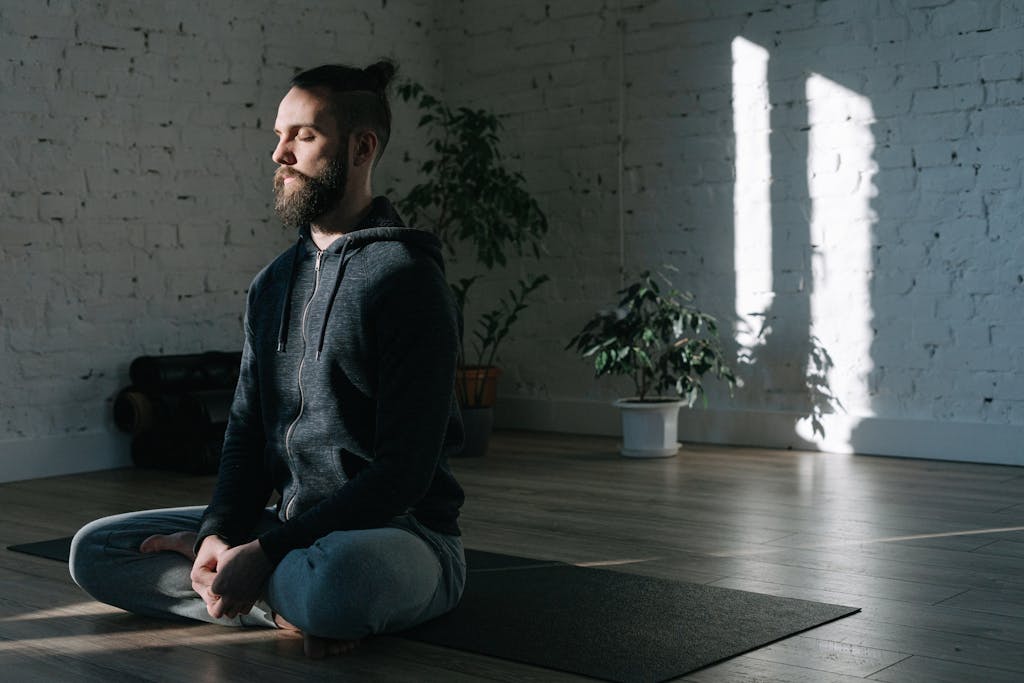
FAQ Section About Meditation Devices
1. What’s the best mindfulness device for beginners?
For beginners, the Core Meditation Trainer and Morphée are excellent choices. They are simple to use, provide gentle guidance, and don’t overwhelm with too much data.
2. Which meditation device is best for stress and anxiety?
The Sensate Relaxation Device stands out because it directly stimulates the vagus nerve, activating the body’s natural relaxation response and reducing stress almost instantly.
3. Can technology really improve focus during meditation?
Yes. Devices like the Muse 2 Headband and NeoRhythm use biofeedback and PEMF technology to help shift brainwave states, making it easier to concentrate and improve mental clarity.
4. Are these meditation tools safe for daily use?
Most meditation devices are completely safe for daily use. Always follow manufacturer guidelines, and if you have medical conditions (especially neurological), consult with a professional before using devices like PEMF or light therapy headsets.
5. Do I need a gadget to meditate effectively?
Not at all. Traditional meditation is powerful on its own. However, devices can accelerate the process, provide feedback, and help those who struggle to meditate consistently or deeply.
Conclusion
The best meditation tools offer exciting new ways to deepen your practice and achieve profound relaxation. Whether you’re using EEG biofeedback, PEMF technology, or guided meditation sessions, these innovations can transform your approach to mindfulness. Try out a few and see which one works best for your unique needs, and soon you’ll be on your way to experiencing enhanced calm and mental clarity.







